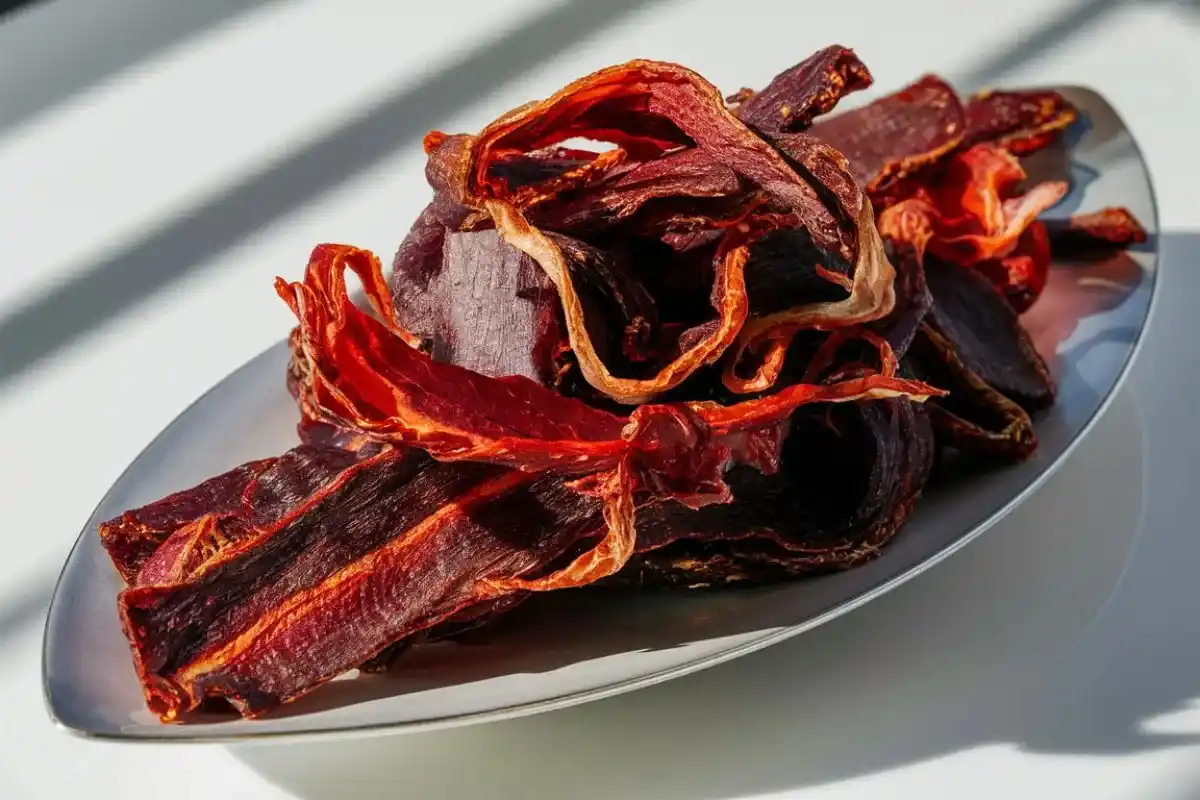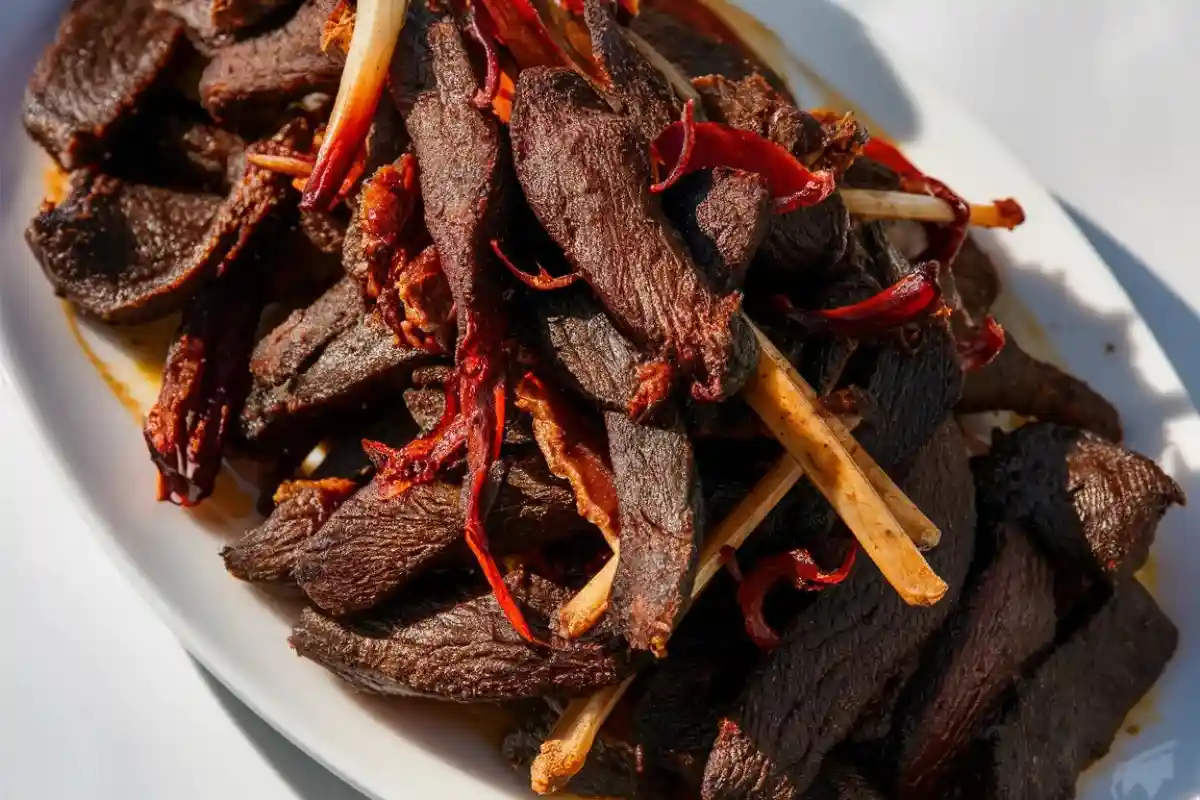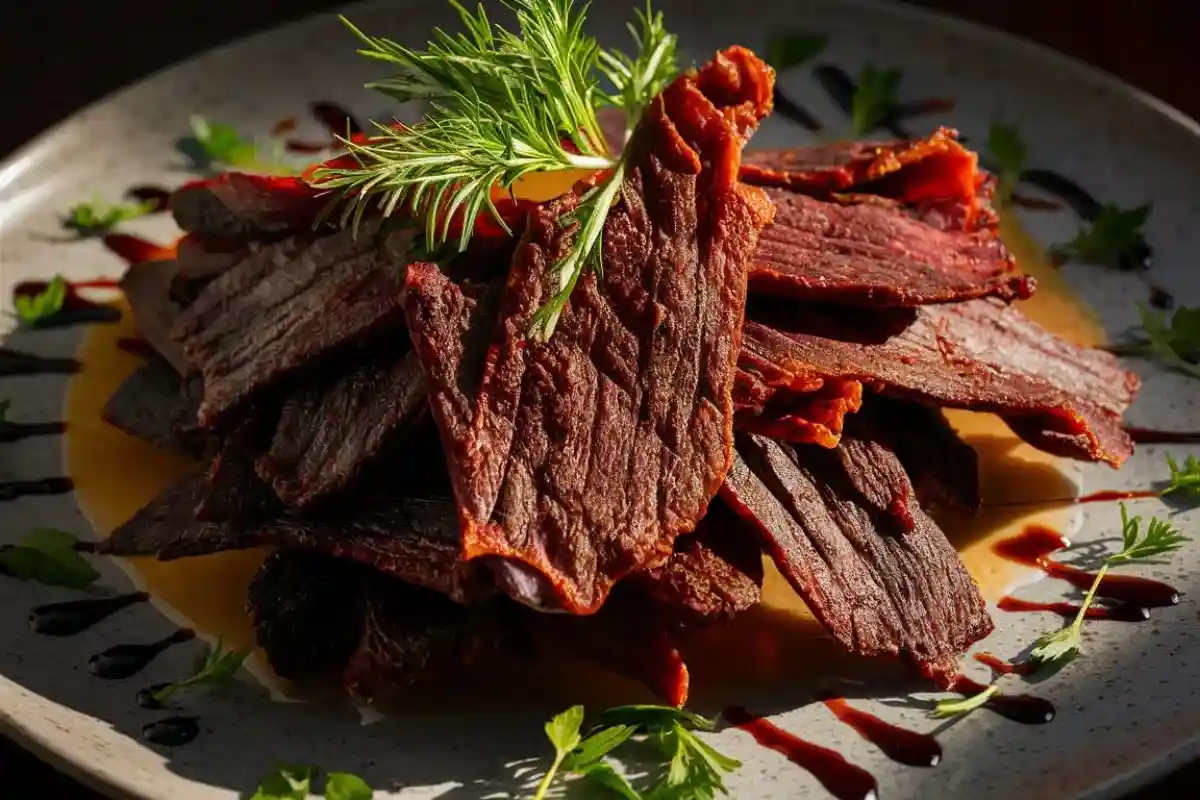How long is dehydrated jerky good for? People cherish this popular snack for its rich flavor, convenience, and impressive shelf life. Whether you’re hiking, camping, or simply enjoying a quick protein boost, jerky provides a satisfying and portable option. However, how long jerky stays good depends on various factors, including the type of meat, dehydration process, packaging, and storage conditions. Understanding these elements can help you maximize the freshness and longevity of your jerky, ensuring it remains tasty and safe to eat. This guide explores everything you need to know about how long dehydrated jerky is good for and the best ways to store it.
Factors That Affect How Long Dehydrated Jerky is Good For

Several critical factors influence the longevity of dehydrated jerky, with each factor playing a role in determining how long the jerky stays fresh and flavorful:
- Moisture Content: The most important factor in jerky preservation is moisture reduction. The dehydration process removes the water content that would otherwise allow bacteria to thrive, making the jerky shelf-stable. Proper dehydration is essential to ensuring that the jerky is sufficiently dry to last. Learn more about the best practices from the National Center for Home Food Preservation.
- Salt and Preservatives: Salt acts as a key preservative in jerky, drawing out moisture and creating an environment that is less conducive to microbial growth. Many commercial jerky products also contain additional preservatives, such as sodium nitrite, which further enhance shelf life. While homemade jerky can be just as tasty, it often lacks these extra preservatives, making its shelf life shorter.
- Packaging Type: The way jerky is packaged significantly affects its shelf life. Vacuum-sealed packaging is the gold standard, as it removes most of the oxygen, preventing oxidation and spoilage. Oxygen absorbers included in the packaging also help keep the jerky fresh by reducing oxygen levels. In contrast, jerky stored in regular plastic bags without a tight seal is more prone to spoilage due to exposure to air and moisture.
- Storage Conditions: Proper storage conditions are crucial for maintaining jerky’s quality. Ideally, jerky should be kept in a cool, dry, and dark environment. Exposure to heat, light, and humidity can accelerate spoilage. Room temperature storage is generally suitable for vacuum-sealed jerky, but more sensitive types, like homemade versions, may benefit from refrigeration or freezing to extend shelf life.
To explore the best practices for storing your jerky, you can read more about effective methods in the how to store beef jerky long-term guide, which offers a comprehensive overview of the dos and don’ts of jerky storage.
How to Store Dehydrated Jerky to Extend Its Shelf Life

Understanding the best storage practices can make a significant difference in how long your jerky stays good. Below are various methods that can help you maximize the shelf life of your jerky, whether it’s store-bought or homemade.
1. Room Temperature Storage
Most commercially produced jerky, especially those in vacuum-sealed packaging with added preservatives, can be stored at room temperature. To ensure maximum freshness:
- Keep Jerky in a Cool, Dark Place: Store jerky in a pantry, cupboard, or any cool area away from direct sunlight. Light and heat can degrade the quality of the jerky and reduce its shelf life.
- Airtight Containers: Use airtight containers or resealable bags to protect the jerky from air and moisture. This is particularly important once the original packaging has been opened.
- Consume Promptly: Once opened, jerky should be consumed within a couple of weeks for optimal taste and texture. Although it may remain safe to eat for longer, the quality can start to diminish.
2. Refrigeration
Refrigeration is an excellent option for extending the shelf life of both commercial and homemade jerky. The cooler temperatures slow down the degradation process and keep the jerky fresh for an extended period.
- Airtight Packaging: Ensure the jerky is stored in an airtight container or vacuum-sealed bag before refrigerating. This prevents the jerky from absorbing moisture or picking up odors from other foods.
- Use Within 3-6 Months: While refrigeration extends the shelf life of jerky, it’s best to consume it within 3-6 months to enjoy its best flavor and texture.
3. Freezing
Freezing is one of the most effective ways to preserve jerky for long-term storage, especially when dealing with large batches or homemade jerky.
- Proper Wrapping: Wrap jerky tightly in plastic wrap or use vacuum-sealed bags to prevent freezer burn, which can affect the texture and taste of the jerky.
- Freeze in Portions: Consider freezing jerky in smaller portions to avoid having to thaw and refreeze repeatedly, which can degrade the quality.
- Extended Shelf Life: Frozen jerky can last up to a year or even longer if stored correctly. However, for the best taste, it is recommended to consume it within 6-12 months.
Comparing Homemade vs. Commercial Jerky
The shelf life and storage needs of jerky can differ significantly depending on whether it’s homemade or commercially produced. Here’s a closer look at the differences between these two types of jerky:
Homemade Jerky:
- Pros: Offers complete control over ingredients, allowing for customization in flavors and avoiding unwanted preservatives. It’s often fresher and can be tailored to dietary preferences.
- Cons: Typically has a shorter shelf life because it lacks the preservatives commonly found in commercial jerky. Requires more careful storage, especially if not vacuum-sealed.
Commercial Jerky:
- Pros: Longer shelf life due to preservatives and vacuum-sealed packaging. Convenient and widely available with a variety of flavors and meat options.
- Cons: Often contains added preservatives, sodium, and artificial flavors that some consumers prefer to avoid. May not taste as fresh as homemade varieties.
Understanding these differences can help you make informed decisions about which type of jerky suits your needs best, particularly if long shelf life is a priority. For a more in-depth comparison, you can explore various beef jerky options to understand their distinct features.
How to Make Dehydrated Jerky Last Longer

Extending the shelf life of jerky is possible with a few practical strategies that help preserve its flavor and texture. Here are some tips that can make a noticeable difference:
- Use Oxygen Absorbers: These small packets, often found in commercial jerky packaging, help reduce the oxygen level inside the package, slowing down spoilage. For homemade jerky, consider adding oxygen absorbers to your storage containers.
- Store in a Cool, Dark Place: Heat and light are enemies of jerky preservation. Always store your jerky in a cool, dark location to maintain its quality.
- Seal Packaging Tightly: Whether you use airtight containers, resealable bags, or vacuum-sealed packaging, make sure to protect your jerky well from air and moisture. A tight seal will help prevent the jerky from becoming stale.
- Avoid Moisture Exposure: Moisture is the primary cause of jerky spoilage. Ensure your jerky is completely dry before packaging and avoid opening the package in humid environments.
- Portion Control: Store jerky in smaller portions to minimize exposure each time you open the package. This is especially useful for larger batches of homemade jerky.
These tips can help you enjoy your jerky longer without compromising its taste and quality.
Types of Jerky and Their Shelf Life
Different types of jerky can have varying shelf lives based on their meat type, preparation, and packaging. Here’s a look at some common types of jerky and what to expect:
Beef Jerky:
- Shelf Life: Commercial beef jerky can last 1-2 years unopened. After opening, consume it within a few weeks if you store it at room temperature or within 6 months if you refrigerate it.
- Storage Tips: Store in airtight containers and keep away from heat and light to maintain freshness.
Turkey Jerky:
- Shelf Life: Generally, turkey jerky has a slightly shorter shelf life than beef jerky due to lower fat content but can still last several months if stored properly.
- Storage Tips: Follow similar storage guidelines as beef jerky to ensure longevity.
Venison Jerky:
- Shelf Life: Venison jerky, often made without added preservatives, has a shorter shelf life, typically a few months at room temperature and longer if refrigerated or frozen.
- Storage Tips: Keep venison jerky tightly sealed and store in the refrigerator for best results.
Frequently Asked Questions
- How long does jerky last once opened?
Consume opened jerky within 1-2 weeks if you keep it at room temperature or within a month if you refrigerate it. - Does dehydrated jerky need refrigeration?
Not necessarily, but refrigeration can help extend the shelf life, especially for homemade jerky or opened packages. - Can jerky go bad in the package?
Yes, jerky can spoil if the packaging is compromised or stored in poor conditions. Always inspect for signs of spoilage. - How can you extend jerky’s shelf life?
Store in airtight containers, use oxygen absorbers, and keep in a cool, dark place to maximize shelf life. - Is it safe to eat jerky past the expiration date?
While it might still be edible, the quality could be compromised. Always check for off smells, discoloration, or mold.
Conclusion
Dehydrated jerky expiration, whether made at home or bought from the store, provides a delicious and convenient snack that can remain fresh for a long time when stored properly. By understanding the factors that affect jerky’s shelf life, utilizing proper storage methods, and following practical tips for preservation, you can enjoy your jerky for months or even years. With careful attention to packaging and storage conditions, you can make the most of your jerky and keep it fresh for whenever you need a quick, protein-packed snack.

